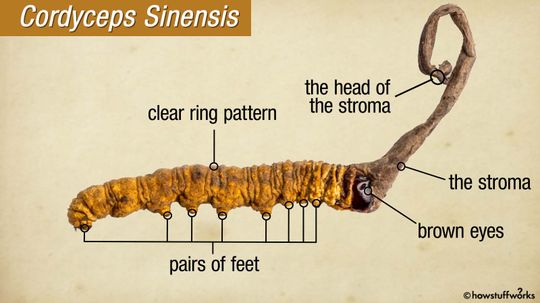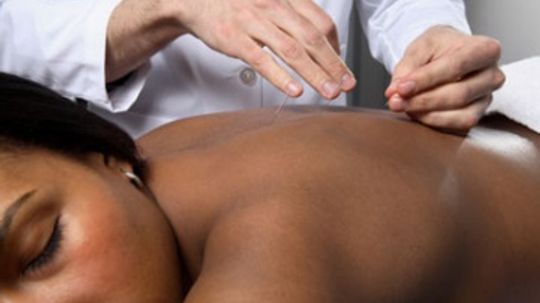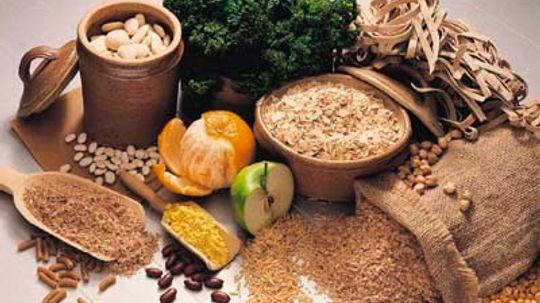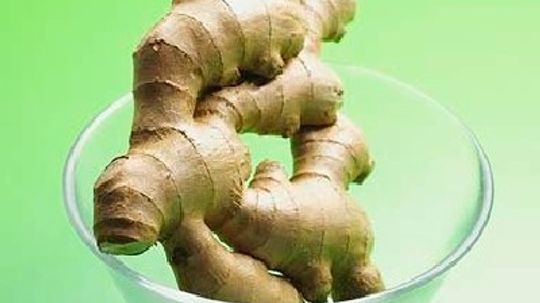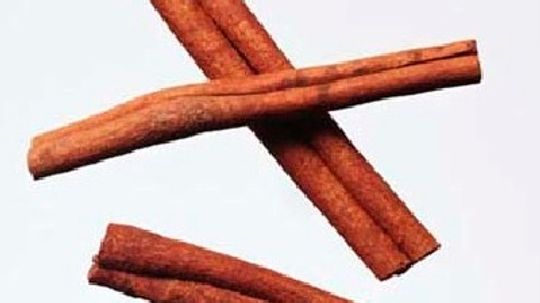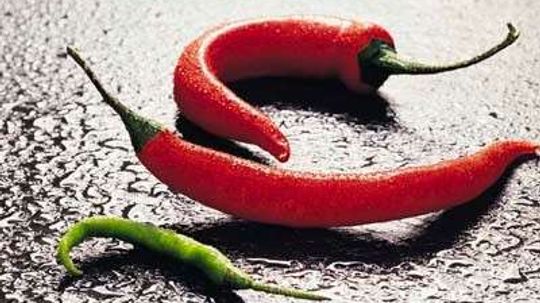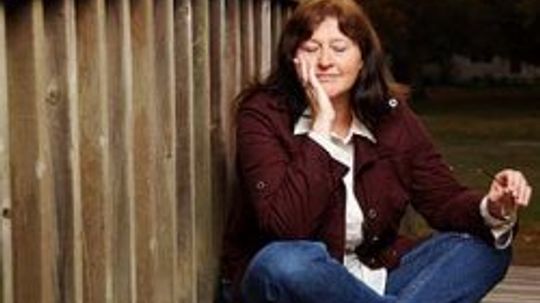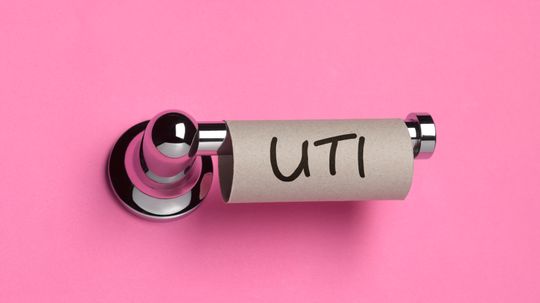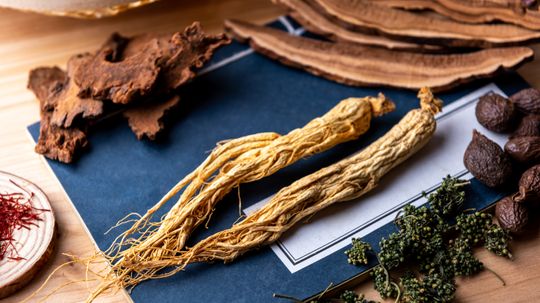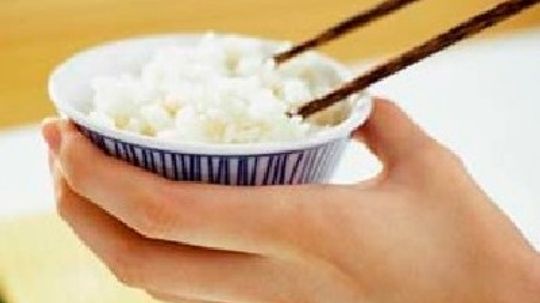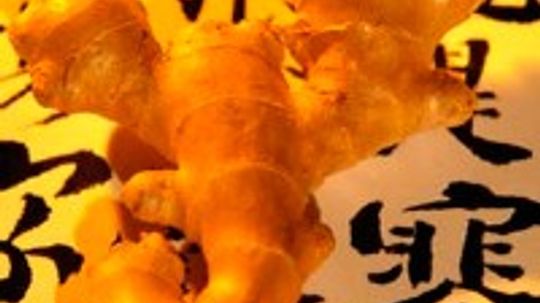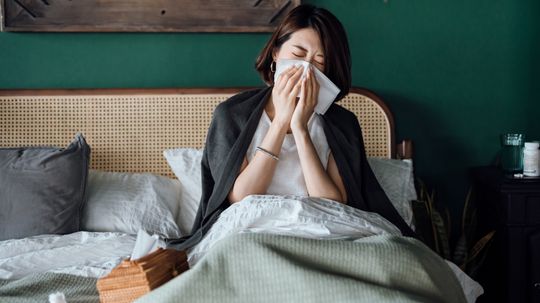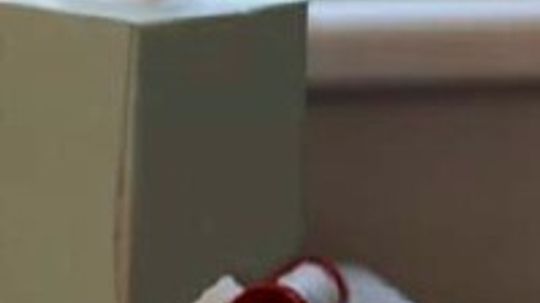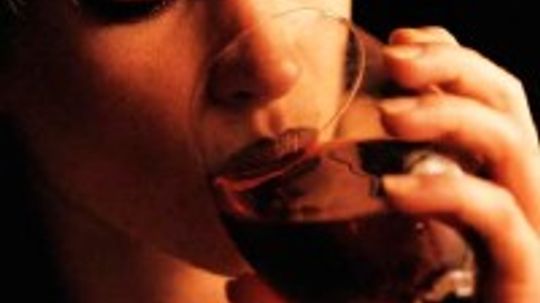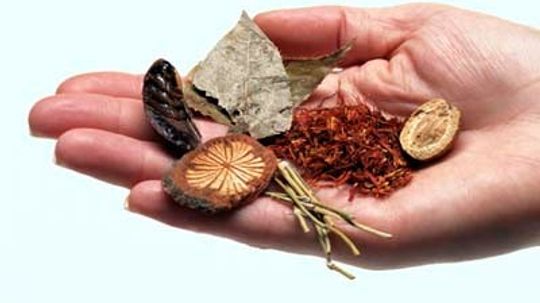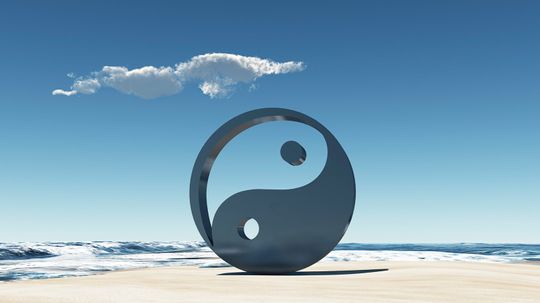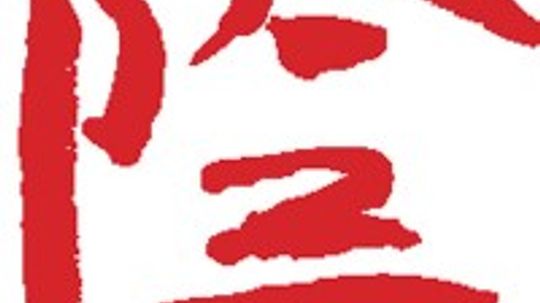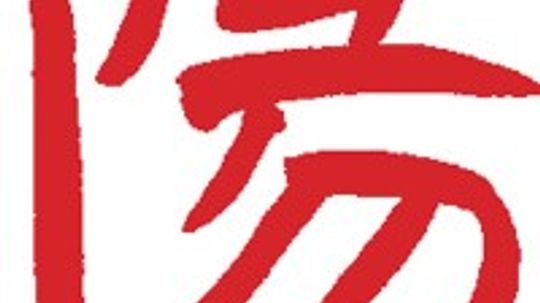Traditional Chinese Medicine
Traditional Chinese medicine is an ancient practice that includes herbal remedies, acupuncture as well as massage therapy, and is still used by millions of people all over the world. Find information about traditional Chinese medicine, treatments, cures and beliefs.
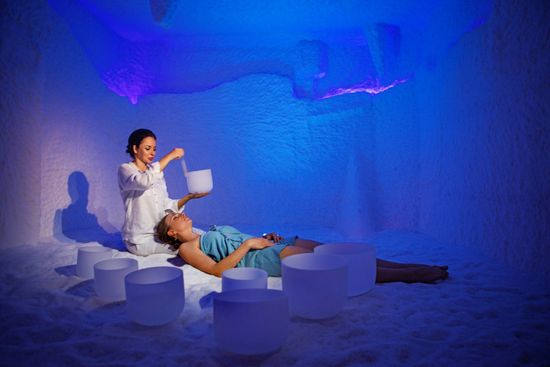
Sound Frequency Healing: The Power of Vibrations for Well-Being
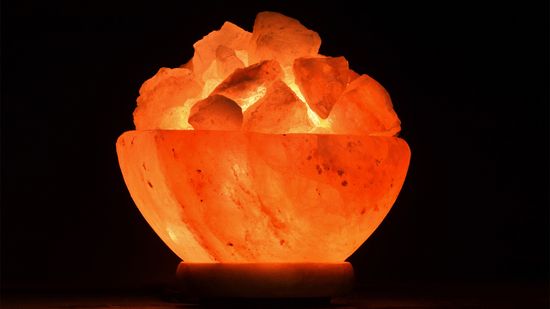
Himalayan Salt Lamps: Health Benefits or Hype?
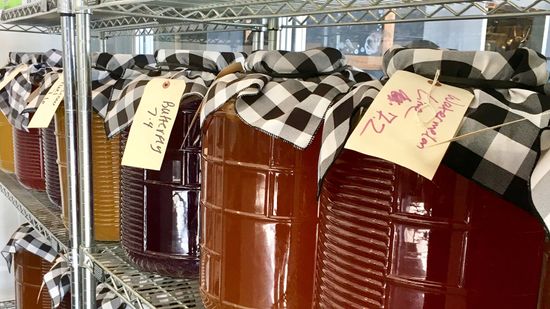
Does Kombucha Really Have Health Benefits?
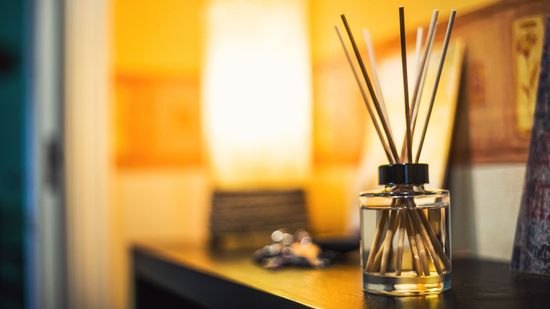
Oil Diffusers Make Your House Smell Great, But Are They Safe?
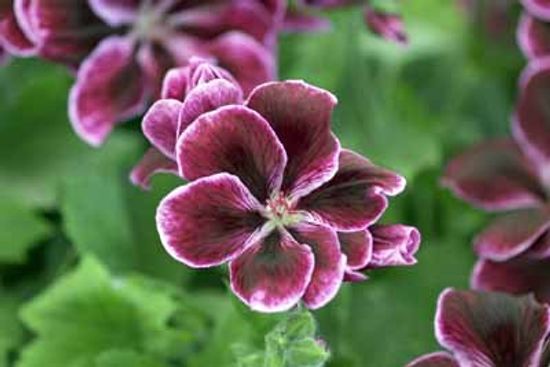
Essential Oils Profiles
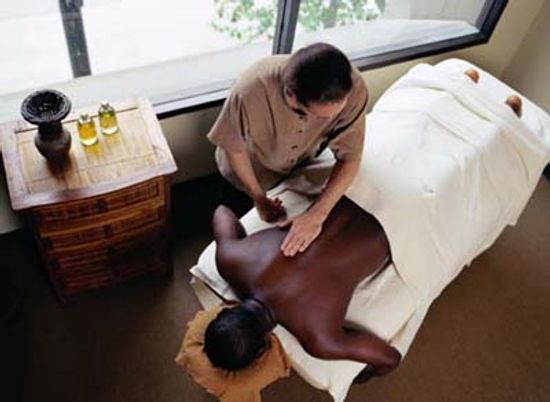
How to Treat Common Conditions With Aromatherapy
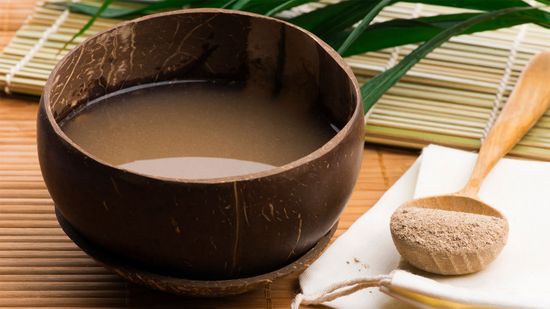
Kava Is Natural and Legal, But Is It Safe?
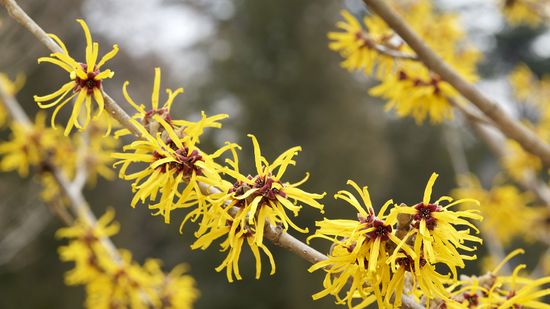
6 Handy Uses for Witch Hazel
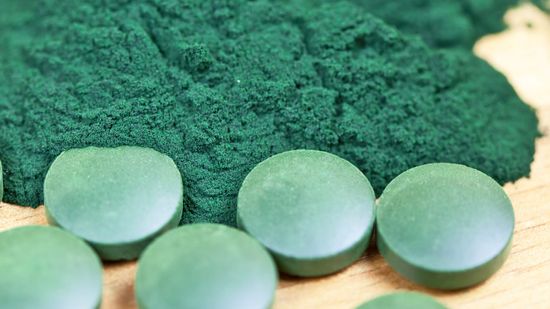
Why People Are Downing Chlorophyll, the Plant Pigment
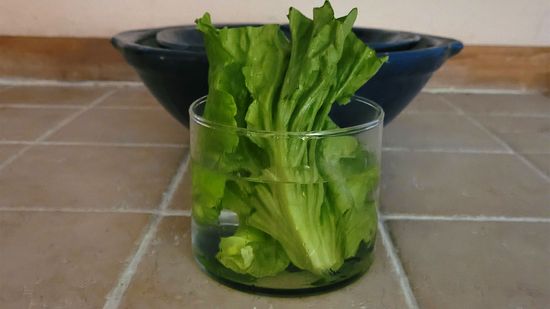
Can Lettuce Water Really Help You Sleep?
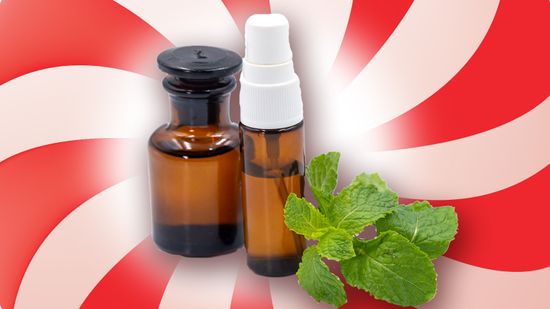
9 Refreshing Uses for Peppermint Oil
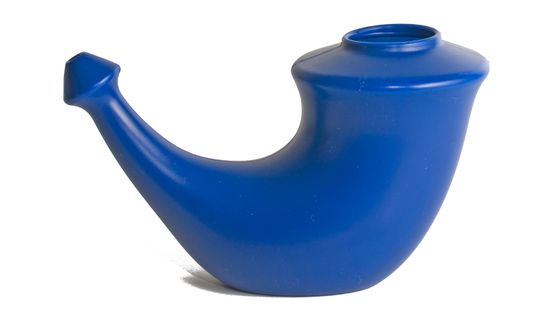
How to Safely Use a Neti Pot
Learn More
Cordyceps is a parasitic fungus that grows on insects. It's been used in Chinese medicine for centuries and is said to fix a host of health issues. But is it too good to be true?
Fatigue can be caused by deficiency of qi, blood, or other vital substance. Acupuncture treatment focuses on bringing energy to the fatigued organs. Herbal therapy is also used. Learn how traditional Chinese medicine treats different types of fatigue.
Traditional Chinese medicine uses combinations of herbs, diet, acupuncture, and other therapies to treat different types of headaches. It is important to have an accurate diagnosis of the cause of the headache because treatment can make it worse.
Advertisement
Traditional Chinese medicine uses combinations of herbs, diet, acupuncture, and other therapies to treat different types of indigestion. Treatment seeks to move qi into the stomach, which stimulates digestion.
Patent medicines are one way that traditional Chinese medicine treats prostatitis and sciatica. Acupuncture is also a very effective treatment method for this condition. Immediate relief is often felt. Learn more about common treatments of these ailments.
Acupuncture and herbal medicine are two ways that traditional Chinese medicine treats sinusitis. Diet also plays an important role because it can increase the disharmony involving mucus. Learn more about how to treat this common ailment.
Sore throats and stress, both common afflictions, are treatable through traditional Chinese medicine therapies. Herbal therapy and acupuncture can typically cause an acute sore throat to subside within a matter of days. Learn more about treatment options.
Advertisement
A diagnosis in traditional Chinese medicine requires keen observational skills and in-depth inquiry. Often, the practitioner can diagnose a disease through an inquiry and external examination. Learn how treatment is based on a diagnosis.
Patent medicines, acupuncture, and herbal therapy are all elements of traditional Chinese medicine used to treat urinary tract infections. Acupuncture can relieve most symptoms within a matter of days, with the Ren 3 point being most effective.
Traditional Chinese medicine uses different treatments for coughs depending on the type of cough. It is important to diagnose the right type of cough because unfocused treatment may be ineffective.
Traditional Chinese medicine uses different treatments for diarrhea depending on the symptoms. Treatment can be as simple as one or two acupuncture sessions in conjunction with a herbal therapy.
Advertisement
Traditional Chinese medicine for arthritis aims both to prevent the disease and to treat it if it's not caught in time. Traditional treatment for arthritis includes acupuncture, herbal therapy, exercise, and diet. Learn more about treatments.
Traditional Chinese medicine for the common cold varies based on the type of cold. However, the longer someone waits to treat the cold, the longer it can take to clear the virus from the body. Learn how to treat common colds with traditional Chinese medicine.
Traditional Chinese medicine depends primarily on herbal remedies for the treatment of constipation, with some acupuncture as needed. Acute constipation is easily treated with acupuncture, with the most important acupuncture point being Stomach 25.
Learn about traditional Chinese medicine for coughs, colds, flu, and allergies. Patent medicines are formulated to relieve these symptoms, and are inexpensive and easy to administer. This article has detailed information on Chinese patent medicines.
Advertisement
A variety of traditional Chinese medicines treats digestive system ailments like diarrhea and constipation. These medicines typically come in easy-to-swallow pills or tablets. Most are based on traditional formulas. Get vital information on these medicines.
Traditional Chinese medicine has a variety of pain relief medicines that treat different types of pain. Sciatica, knee pain, and menstrual pain are all treatable by different types of Chinese medicine. Get important information on these treatments.
Traditional Chinese medicine has a variety of natural formulations to improve overall health. These medicines boost overall health by reducing inflammation, strengthening immunity, and regulating digestion.
Traditional Chinese medicine uses a combination of herbs, diet, and acupuncture to provide relief from allergies. Acupuncture is used for the immediate relief of allergy symptoms. Points around the nose are manipulated for relief.
Advertisement
Practitioners of traditional Chinese medicine consider a variety of factors in determining cause of illness. Some of the causes are external, some are internal, and some can be caused by the diet. Read about their diagnostic processes.
In the Eastern tradition, practitioners diagnose patients by following patterns of disharmony. Disharmony patterns are identified through an assessment of the organs, which gradually uncovers the disease.
In China, more than a million tons of herbs are used each year as medical substances. A clinical herbalist uses more than 250 standard formulas, which are modified to fit the disharmony pattern of a patient. Learn about traditional Chinese herbal medicine.
Yin and yang is the idea that the world is expressed through an endless cycle of polar opposites, such as hot and cold. It's influenced Chinese culture in the areas of martial arts, philosophy and more.
Advertisement
In traditional Chinese medicine, the yin organs produce, transform, and store qi, blood, body fluids, and essence. The five organs are the lungs, spleen, heart, liver, and kidneys. The theory focuses on how organs relate to each other.
The yang organs, in traditional Chinese medicine, separate impure substances from food and drain them from the body. The yang organs are the stomach, the small intestine, the large intestine, the urinary bladder, and gallbladder.
